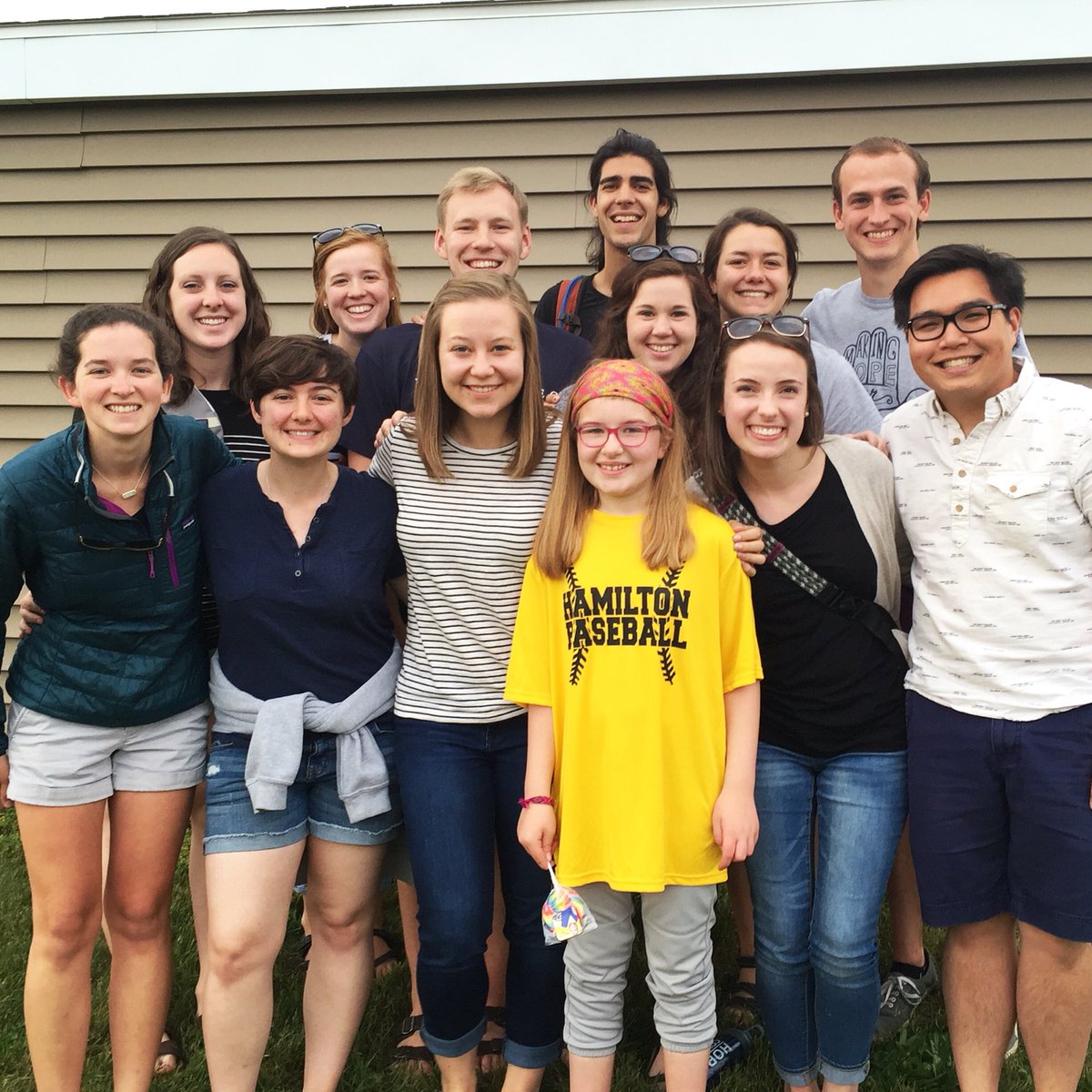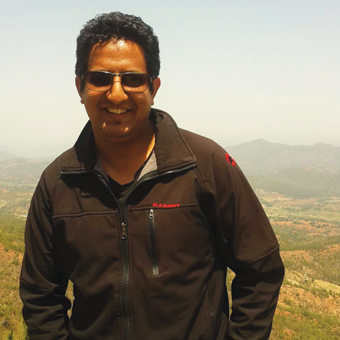
Since graduating from Hope, Vidhan Rana ’08 has traveled thousands of miles away from the campus to fulfill his vocation in Nepal, the country in which he was born and raised. Yet, despite his distance from the college, his experiences at Hope remain ingrained in him daily, as he has been inspired to live a life of service that is dedicated to enriching others’ lives—just as Hope enriched his.
With this commitment to service in mind, he has established Biruwa Ventures, an organization based in Kathmandu, which offers business consulting, mentoring and seed capital to start-ups and growth-phase companies. In addition, he is passionate about education. In fact, ever since he was a Hope student, he has volunteered on behalf of an effort that supports schools across Nepal, an initiative that became critical in the wake of the multiple earthquakes that have struck the nation since April.
“There is a greater purpose to life than just caring for yourself. If there is any way I can contribute towards helping other people improve their lives, I feel I should do something about it.” —Vidhan Rana ’08
Rana’s journey to Hope, and eventual discovery of a service-oriented life, began during his senior year at Budhanikantha School, when he learned about the college from Utsab Khadka ’06 and Shova KC ’07, recent graduates of the high school who were also Hope students. He liked what he learned about Hope, and was intrigued by the concept of studying abroad, due to the political turmoil that was occurring in Nepal at the time, as the country was in the midst of a decade-long civil war.
After moving to Holland, he committed his time and talents to academic work and campus life, and became acclimated to American culture as he pursued a degree in business management and economics; was accepted as a member of the Baker Scholars, an honors program for economics, management and accounting students; and participated in international education events like “IMAGES: A Reflection of Cultures.”
He also spoke with friends who were involved in service-focused activities like mission trips. Before long, he realized just how meaningful a life of selflessness could be.
“I began to think about how I could help Nepal, so the career I chose is a result of the inspiration I received at Hope,” Rana said. “Without this inspiration for service, I would have never returned to Nepal.”
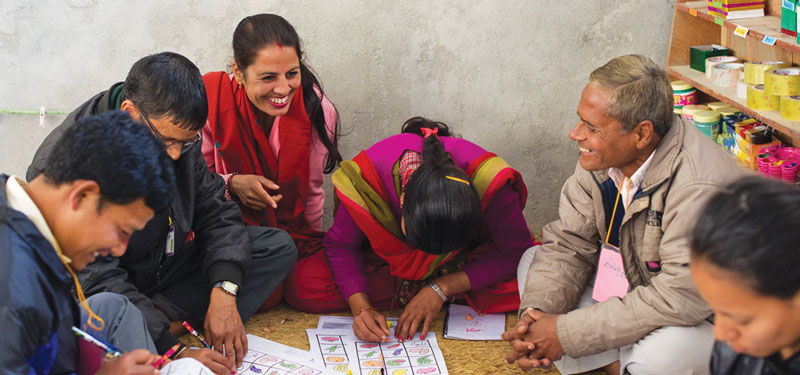 He continued, “There is a greater purpose to life than just caring for yourself. If
there is any way I can contribute towards helping other people improve their lives,
I feel I should do something about it.”
He continued, “There is a greater purpose to life than just caring for yourself. If
there is any way I can contribute towards helping other people improve their lives,
I feel I should do something about it.”
In the meantime, during the first semester of his junior year, a monumental event transpired: the Comprehensive Peace Accord was signed in November 2006 between the Nepali government and the Unified Communist Party of Nepal, thereby ending the civil war.
“When the peace treaty was signed, I immediately began to make plans to move back to Nepal after my graduation from Hope,” Rana said. “And I started to look into ways I could contribute towards the development of the country.”
He soon learned about the Santi School Project, a nonprofit organization that was building a school in Ramche, a remote village east of Kathmandu. After talking to the nonprofit’s founder, Christopher Heun, on Skype, Rana pledged to raise $5,000 for the school. He spoke to friends, faculty and staff members at Hope about the cause and even held a fundraiser at Holland’s Third Reformed Church. Ultimately, he surpassed his goals and raised more than $10,000 instead.
Rana has been actively engaged with the organization ever since, as he has helped a variety of other schools improve their infrastructures as well.
“Through our experiences in Ramche, we realized that there are many government schools in Nepal that need outside help, as the government’s allocated budget is barely high enough for them to operate,” Rana said.
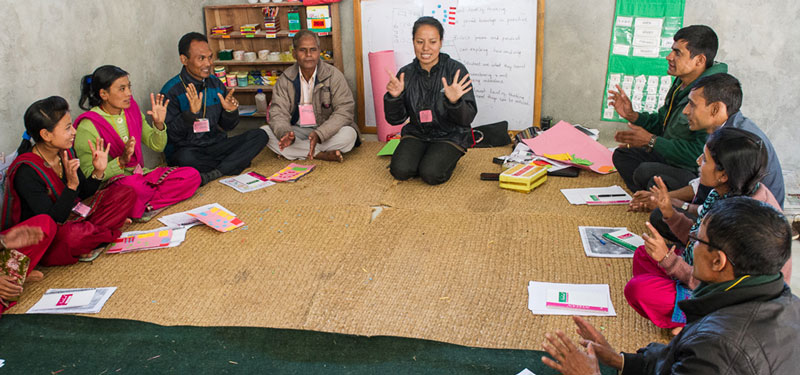 The Santi School Project’s efforts focus especially on offering reconstruction and
infrastructure support—mainly to government and community-owned primary schools—an
emphasis that became even more crucial on April 25 of this year, when a 7.8-magnitude
earthquake struck Kathmandu and its surrounding areas. According to the United Nations,
870,000 school children were directly affected by the devastation, as nearly 5,000
schools were completely destroyed and more than 16,000 schools were damaged and left
unsafe.
The Santi School Project’s efforts focus especially on offering reconstruction and
infrastructure support—mainly to government and community-owned primary schools—an
emphasis that became even more crucial on April 25 of this year, when a 7.8-magnitude
earthquake struck Kathmandu and its surrounding areas. According to the United Nations,
870,000 school children were directly affected by the devastation, as nearly 5,000
schools were completely destroyed and more than 16,000 schools were damaged and left
unsafe.
Since then, more than 400 aftershocks have occurred, including an earthquake that measured 6.9 on the Richter scale on May 12. Economic expenditures are currently estimated at more than $5 billion—and are steadily rising.
“The school we originally built, along with four other schools we reconstructed nearby, were severely damaged,” Rana said. “These schools will now need to be rebuilt. We have raised more than $200,000 so far to rebuild around 20 schools in all.”
It’s an effort that has even extended back, appropriately, to Hope. To help Rana raise further funds for the Santi School Project, Shubham Sapkota ’15, a native of Nepal who is currently studying at the University of Denver (Colorado), and Amy Otis-De Grau ’96, director of international education, established a framework for fundraising events on Hope’s campus.
Although Sapkota has never met Rana, he reached out to him after the earthquakes to see how he could help.
“I had just finished college and I was still in the Holland area, so it was a perfect time for me to coordinate efforts from various Hope connections,” Sapkota explained. “I basically acted as a bridge between Hope’s international education department and Vidhan’s efforts for earthquake relief.”
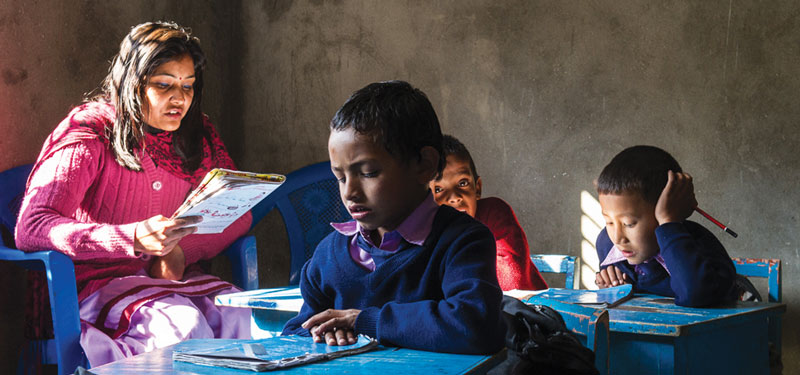 In November, international education’s cross-cultural showcase, “IMAGES: A Reflection
of Cultures,” featured the Santi School Project in a five-minute presentation, following
in suit with previous showcases that have donated to causes such as typhoon relief
in the Philippines and earthquake relief in Japan and Pakistan. The department’s International
Food Fair will also highlight the nonprofit in February.
In November, international education’s cross-cultural showcase, “IMAGES: A Reflection
of Cultures,” featured the Santi School Project in a five-minute presentation, following
in suit with previous showcases that have donated to causes such as typhoon relief
in the Philippines and earthquake relief in Japan and Pakistan. The department’s International
Food Fair will also highlight the nonprofit in February.
The connections are certainly meaningful to Rana, as they provide a fitting link to his own experiences on campus, which he never would have imagined 10 years ago.
“Some of my fondest memories from Hope are of rehearsals and the ‘IMAGES’ shows, as well as the Nepali cuisine I cooked during the International Food Fair,” Rana said. “Aside from making my transition into a completely new environment as smooth as possible, the international education department also opened my eyes to different cultures and perspectives. It helped me expand my knowledge so that I became a more open and accepting person.”
